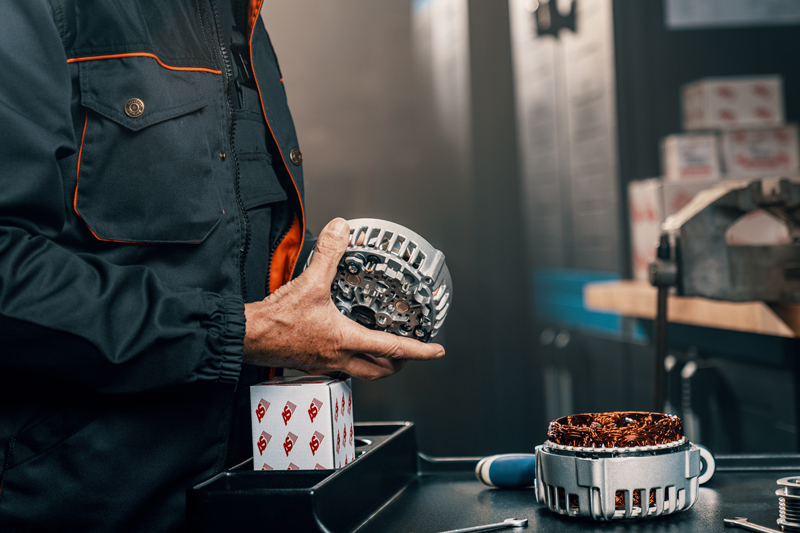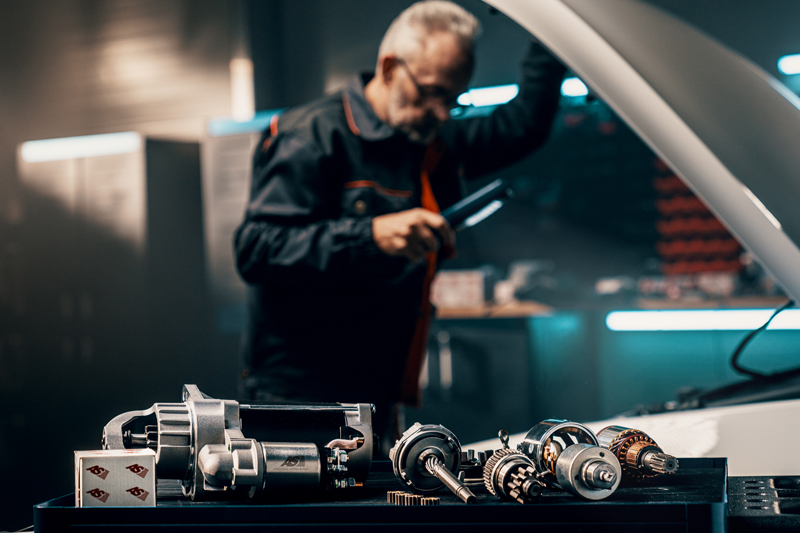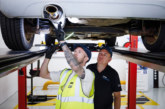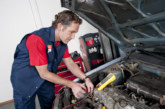Inside the remanufacturing process

AS-PL Production Director, Michał Czarzasty, looks at both the ecological and economic benefits of remanufacturing.
In a world where sustainability is no longer optional but essential, remanufacturing is emerging as a powerful solution that balances ecological responsibility with economic sense.
At its core, remanufacturing is the process of giving a second life to used products – alternators, starter motors and other essential automotive components – making it an innovative alternative to purchasing new parts, which often come at a high cost.
At our advanced production facility in Poland, this process is executed with precision, using advanced equipment and adhering to rigorous EU quality standards. Every component begins its journey as a ‘core’ – used parts sourced from specialised partners. These cores undergo detailed analysis and, if they meet our strict criteria, are disassembled and subjected to a thorough inspection.

Parts that pass this evaluation are then sent to dedicated stations for cleaning, refinement and refurbishment. Components that don’t meet our expectations are excluded early on, optimising time, labour and machine resources. The successful parts are reassembled, tested repeatedly throughout the process, and then subjected to a final inspection. Only after passing this last hurdle is the remanufactured product approved, accompanied by a detailed test report that certifies its performance to be on par with OEM standards.
Innovation rooted in responsibility.
Our dedication to refining the remanufacturing process showcases how innovation and sustainability can go hand in hand. By blending technological excellence with a deep sense of environmental and economic responsibility, remanufacturing is a practical alternative for the future of the automotive aftermarket.

Ecological impact: more that just recycling.
From an environmental standpoint, the benefits of remanufacturing are clear: the process minimises waste by salvaging as many components as possible from each core, drastically reducing the volume of usable parts that would otherwise end up in landfills. On average, our premium line of remanufactured products retain more than 80% of original components.
By extending the lifecycle of these parts, we’re helping conserve valuable natural resources, including raw materials, energy and water – the result? A significant reduction in environmental impact without sacrificing performance or quality.
Economical advantage: quality without the cost.
From an economic perspective, remanufacturing offers a high-value, cost-effective alternative to new components. Optimised processes and early-stage testing of cores allow us to reduce operational costs, streamline labour and improve efficiency.
Moreover, each remanufactured product undergoes comprehensive testing, significantly reducing the risk of future defects and minimising the likelihood of customer complaints. This commitment to quality assurance boosts both customer confidence and protects the reputation of the factors and technicians that rely on our products.








